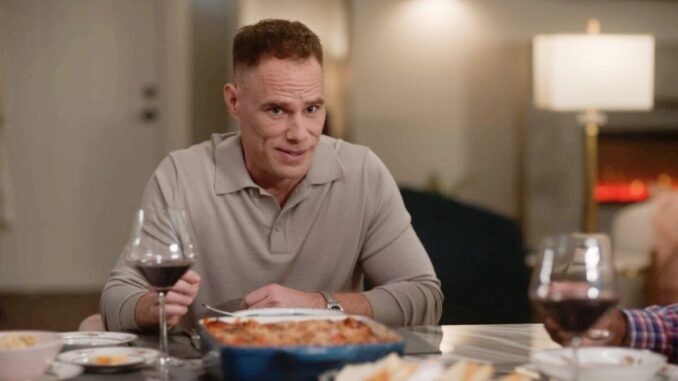
When it comes to television representation, particularly in the LGBTQ community, there’s often a gap between reality and what we see on screen. In the CBS dramedy So Help Me Todd, Matthew Wilkas takes on a groundbreaking role as Lawrence, a character that challenges traditional queer stereotypes. As he navigates familial drama and personal identity, Wilkas opens up about the significance of portraying a character that’s more than just a label.
A Refreshing Take on Queer Representation
Matthew Wilkas’s character, Lawrence, stands out in a landscape cluttered with stereotypical portrayals of queer characters. “I’ve played a lot of queer characters, but I’ve never encountered anyone quite like Lawrence,” he shares. Unlike many characters defined by flamboyance or conflict surrounding their sexuality, Lawrence is a more nuanced figure. He’s an ex-marine, a dedicated father, and a member of a family that feels authentic, relatable, and complex.
Challenging the Gay Label
In the episode titled “Is The Jury Out?”, Lawrence grapples with the concept of identity. While married to a man and navigating life as a father, he questions the very label that society has placed on him. “How am I ‘gay’? What does it matter if I have that label? I’m a working, busy, tired father,” he contemplates. This moment resonates deeply because it addresses a reality many people face—labels can be both liberating and confining.
Wilkas emphasizes that while labels can help build community, they can also be exclusionary. “Sexuality is so nuanced and varied,” he says. “There should be room for everyone in the queer community.” This perspective is vital as it reflects the complexities of human experiences, encouraging viewers to embrace the full spectrum of identity.
The Power of Everyday Stories
One of the most compelling aspects of So Help Me Todd is its ability to weave in serious topics without turning them into the central conflict. Lawrence’s journey isn’t dominated by his sexual identity; rather, it serves as a part of his multifaceted life. “This is the first time identity has really come into play for my character,” Wilkas notes. Before this episode, Lawrence simply existed as a member of the Wright family, dealing with relatable adult problems.
This approach is refreshing in a media landscape often preoccupied with trauma or struggle as the defining narratives for LGBTQ characters. “Seeing queer characters just going about their everyday lives on television helps to show the world that all sexual orientations are valid forms of human expression,” Wilkas asserts.
Why Representation Matters
Growing up in the 80s and 90s, Wilkas faced a scarcity of relatable queer characters. “I can only think of a handful of queer characters that I saw on TV and film… they were either closeted or struggling for acceptance,” he reflects. This scarcity created a sense of fear and isolation for young people grappling with their identities.
Contrast this with Lawrence’s character—married, with a child, and fully embraced by his family. “A gay man like Lawrence would have been a breath of fresh air to say the least,” Wilkas admits. This speaks volumes about how representation can transform lives and foster acceptance.
What’s Next for Lawrence?
As the second season unfolds, Lawrence’s story continues to evolve. Although the recent episode marks his last appearance for the season, fans can expect more from him and his husband, Chet, who are planning to welcome another baby. “I know we’ll be seeing more of them in season 3!” Wilkas hints, leaving viewers excited for the future of the Wright family.
The Broader Impact of So Help Me Todd
Shows like So Help Me Todd aren’t just entertaining; they play a crucial role in shifting cultural perceptions. By presenting characters like Lawrence, the series fosters a broader understanding of what it means to be part of the LGBTQ community. These stories remind us that family dynamics, personal struggles, and individual identities are universal experiences, irrespective of sexual orientation.
Conclusion: Embracing Nuance in Queer Representation
Matthew Wilkas’s portrayal of Lawrence in So Help Me Todd breaks the mold of traditional queer characters on television. By exploring themes of identity and family without relying on stereotypes, the show offers a refreshing take on representation that resonates with audiences. As we look forward to future seasons, it’s clear that So Help Me Todd is paving the way for more diverse narratives in the LGBTQ landscape.
